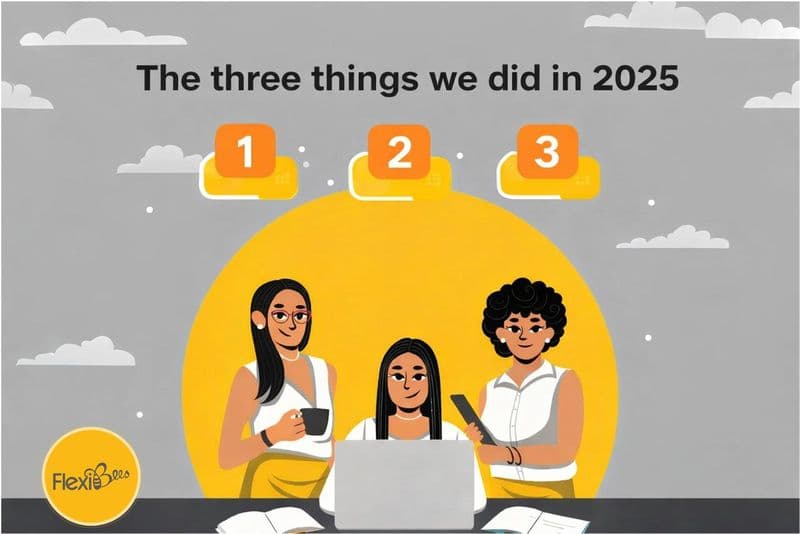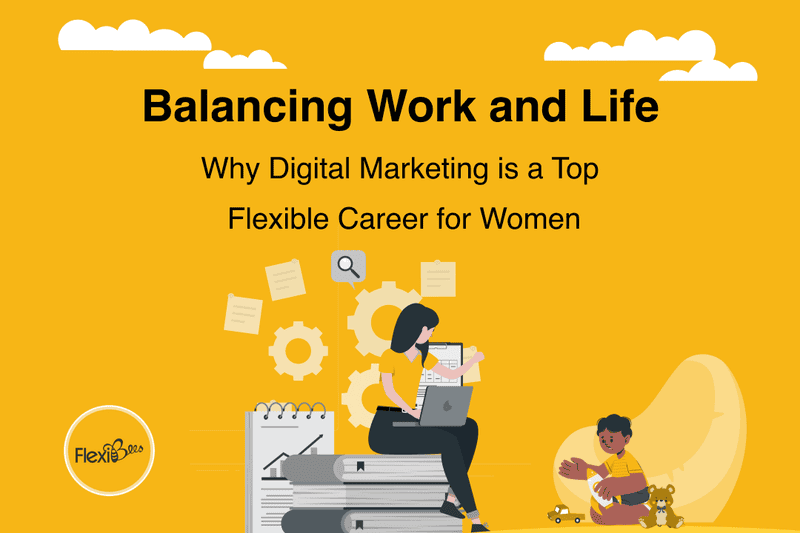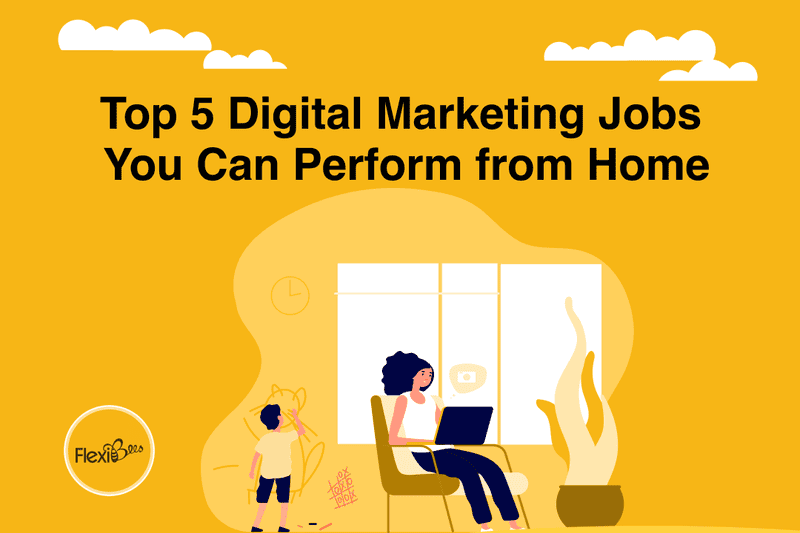Think of sophisticated technologists and future-ready digital solutions.
We would usually imagine well-lit plush offices in metro cities. Engineers, developers and architects from premium institutions with impressive brand names on their resumes.
But what if there are pools of untapped talent in other parts of the country?
From lesser own institutions, with almost no experience, but with promising potential?
Would you work with them?
Would you trust them to deliver the output you are looking for?
Tapping into this rural talent pool is DesiCrew, an organization that focuses on building prosperity hubs in rural communities of India.
DesiCrew is the brainchild of Saloni Malhotra, which started as a small initiative towards solving a bigger need by creating job opportunities; and has grown into a 1400-people organization offering AI and ML solutions and working on cutting-edge technology platforms.
She connected the dots between Technology, Business and Social Impact to bring DesiCrew to life.
Though headquartered at the IIT-Madras Research Park, Chennai, most of their action happens out of their Operations centers located across tier-ii and tier-iii towns and villages across India, and are compliant with Data security norms, and working 24/7.
DesiCrew is also one of our clients at FlexiBees, having hired multiple part-time and remote-working professionals to assist their existing teams. So we recently caught up with Manivannan J.K, CEO of DesiCrew to understand their business and to know what worked well for them and why they choose to hire flexible talent. What ensued was an interesting conversation about how they hone talent and create opportunities for people in various demographics.
Some excerpts from our conversation:
How did it all start? Tell us your story.
DesiCrew was incubated in IIT Madras to create meaningful career opportunities for youth from rural areas and small towns. We wanted to think outside the metros and see what is possible.
One of the professors, Prof. Ashok Junjhunwala was passionate about this idea. Incidentally, he was the one who was instrumental in the technology behind getting telephone connections across the country, including the remotest parts, via coin-operated telephones. He has won the Padma Shri for it. This was an idea close to his vision.
At that time, Saloni was thinking about how she could take tech to the villages. She had 6 months of tech experience and was young and ambitious! So, she met this professor and shared her idea. He was on board but wanted her to do some research to see how this is feasible. To this end, Saloni went into the rural communities of Tamil Nadu to talk to people and understand their needs and challenges. She didn't even know the language!
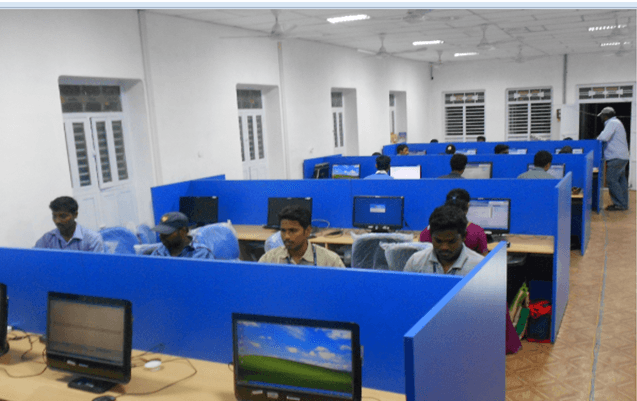
After spending enough time on it, she came to realize that the biggest resource the villages had were their people. She wanted to find ways to capitalize on human resources. She had the vision to imagine that in about 15 years, the tech would take the forefront and geographical constraints would start fading. We wanted to create a model where the jobs would chase people and not the other way around.
That’s how she made the match between rural communities, technology and job opportunities.
And we did have some hardships and hiccups in the initial stages of the inception. Language was a barrier. Trying to convince clients that their data would be handled by some guys in a remote village did not go down well. They were worried about security and ability. We started slowly, picking up people and clients one by one - and educating both groups of people as we went along.
How did you come to be a part of DesiCrew?
I started my career in the banking sector after my engineering degree and an MBA from IIM Bangalore. I then cleared the Civil Services exam and wanted to become an IAS officer. But they offered me other posts in spite of bagging the 44th rank nationally. I wanted to make a difference, an impact. I wanted to work at the grassroots level. So, I turned down the other options.
Then I joined a non-profit organization in Hyderabad that was modelled by Mr Ramalingaraju. It was a brilliant idea and we had done a lot of work to get it off the ground. To honour the memory of his father, Mr Ramalingaraju wanted to do something to improve the lives of people at the grassroots level. He wanted to leverage technology and find ways to solve problems and provide better services to them. I was their first employee. It had the hustle of a start-up and I threw myself into it. We worked on improving healthcare, sanitation, water facilities and education. We worked with 200 villages - that is almost as many people as in a small European country!
We even set up a rural BPO to fund this model so that it could self-sustain. We were very close to achieving it in the 5 years but a lot of things happened after that led to an incomplete journey.
In 2010, I met Saloni and joined DesiCrew. After a couple of years, Saloni took a back seat and withdrew from the day-to-day management and I have been the CEO ever since.
What makes DesiCrew so different from others?
I honestly think it is the intensity with which we followed up and stayed with our vision.
In the first 5 years, no one was buying it. No one wanted to take the risk of working with this demographic. It was not an easy sell. So we spent time honing our team and educating our clients.
In the next 5 years, we saw a lot of people starting similar initiatives. It was getting popular. Internationally, it was known as Impact Sourcing. But sustaining and scaling were the biggest challenges. Nonetheless, you still had to see it as a business model and plan accordingly.
I think our ability to evolve and upskill people was our greatest differentiator. Initially, we started with only data entry kind of roles. But we invested in our people to train them to do more complex tasks. This involved training them not just for technical skills but attitude and exposure too.

At the end of the day, the client wants results and we want the client happy!
So, there is no room for compromise on quality and delivery. I think we found the sweet spot between man and machine.
And as we delivered successfully, we could build more confidence in our clients and the market. I am happy to share that our top 10 clients have been with us for about 6-7 years. That is the greatest testimonial for us!
So how do you choose people? And how do you upskill them?
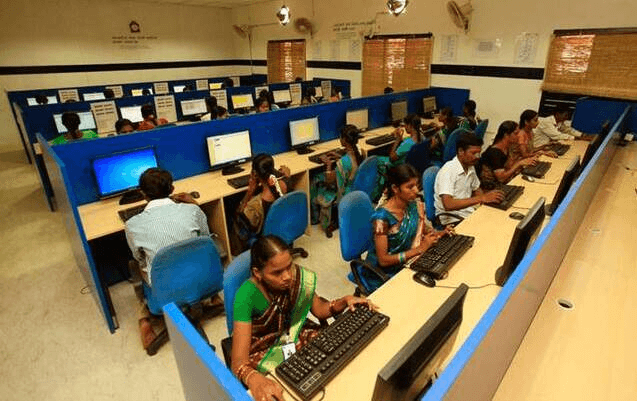
There are initiatives that work to upskill people. But once they do, the biggest challenge they face is in placing them or finding opportunities for these people to put their training into practice, in the form of a career path.
To address that need, we choose to employ the people we work with. We train them at our expense. This process has largely evolved based on what we heard from our clients and what they need.
So, we start chosen candidates on a stipend and they learn a lot on the job. If they are able to deliver and show consistent results, we add them to our payroll. It takes anywhere from 2 weeks to 2 months.
There is a lot we ask of the candidates as well - in terms of radical changes in their lifestyle and commitment. They have to adhere to shifts and put in the time and effort to make it. The onus of upskilling is on them. We have all our resources available on the cloud through our internal skilling platform D-TOUCH. We reward performance and it is integral to their survival in the organization.
But our retention rates are very high. Once they get into the groove of the work, they identify themselves with the organization and stay with us. They work doubly hard! They have hunger as the opportunities they get are limited.
Can you share a recent success story?

Another example is how we upskilled our people for AI/ML - teaching the machine to learn, to train it with actual data. The machine will eventually pick up and learn on its own but the accuracy levels depend on the power of the data sets and training. And as the machine keeps learning, we need to ensure it is fed data of a higher level. So it means, our people need to constantly upskill to keep up with it.
And I am proud to say we are on par with the best in the world. Not just from India.
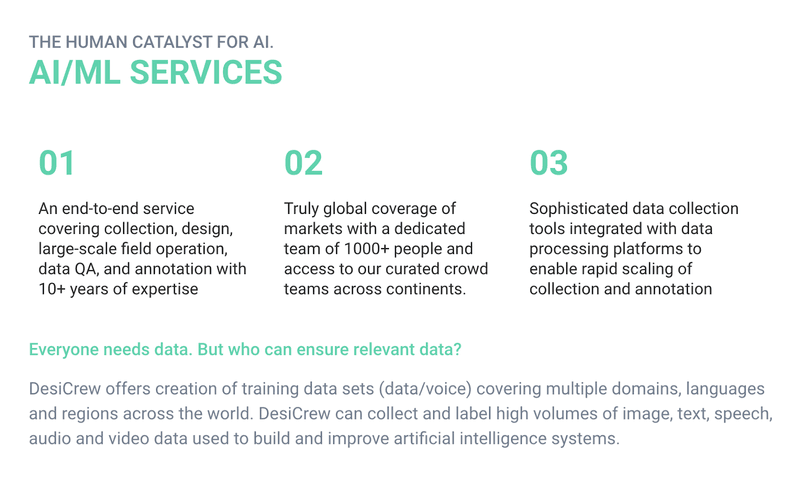
Another example is our QAonCloud. QAonCloud offers fully managed and jointly managed product testing for your web, mobile and/or desktop apps. We were working with international clients. The core delivery team is in a village. The client is in Belgium, the Business head is in Kolkata, the Architect is in Bangalore and the delivery team is in the village. This is all working seamlessly! We could have never imagined this kind of collaboration and delivery!
Another one of our new babies is Accountifi. It provides Automated Bookkeeping, Accounting, and Advisory services by using a combination of experts alongside Machine Learning (ML) and Bots. And we are seeing tremendous growth.
While there are some tangible success stories like this one, we also had to define success metrics based on this model and the reality of these communities. For example, I am proud to say that we have 500 people strong BPO in one of our operations centres in a Panchayat village. But compared to the BPO industry, this is a small number, insignificant even. But we made a difference because every one of those 1400 employees was now earning 10x their parents did.
What made you opt for flexible talent and FlexiBees and how has been your experience?
We have had a wonderful experience working with FlexiBees.
The idea resonates with us because you are also creating meaningful work for a talent pool that is often overlooked and ignored. Fits in perfectly with our philosophy.
Covid has changed the way we hire too. Earlier we used to hire candidates only if they were willing to travel to our operation centres in various remote villages. But today, with everything virtual, hiring experienced women was a good option. FlexiBees has taught us that remote working can be successful at any level! They tend to contribute almost immediately upon joining. It works very well in terms of budgets and the quality of professionals available too.
We started with a couple but hired multiple professionals, including a Project Manager, 4 Lead Generation Professionals, and a Sales manager, as we saw value in the proposition.
A special mention to Trishi, Aarthi and Shanti. It has been so hassle-free and fruitful working with them. They accept an assignment and know the responsibility - that is 90% of the job! We can't keep monitoring and policing everyone! Qualified and responsible professionals like the women from FlexiBees are a delight to work with!
They have also added so much more value than just delivering what’s asked of them. For example, Trishi worked in sales before and she brings her network with her. She is able to put together solutions on her own and lead the way for the others in the team. Her experience and exposure definitely add so much to the team as a whole.
And not to forget, Neti, The BD Manager who handles our account. She is very responsive. We gave her a long list and she got us really good hires and saved us time and effort.
If you are looking for digital services and solutions, do reach out to DesiCrew.
